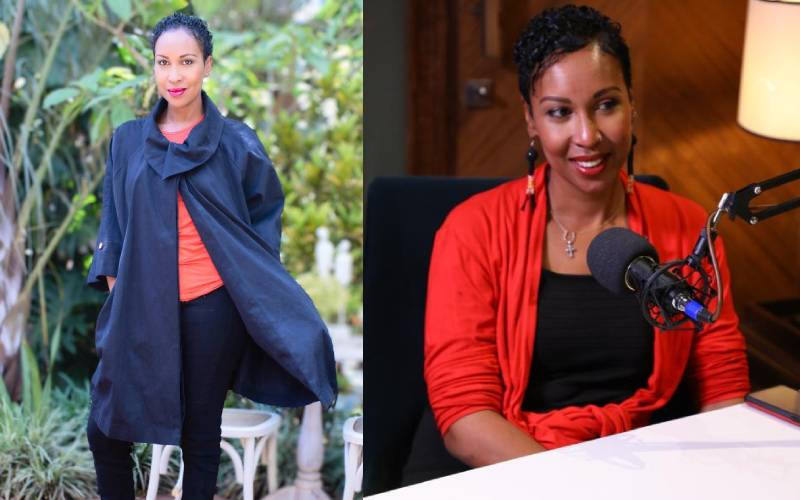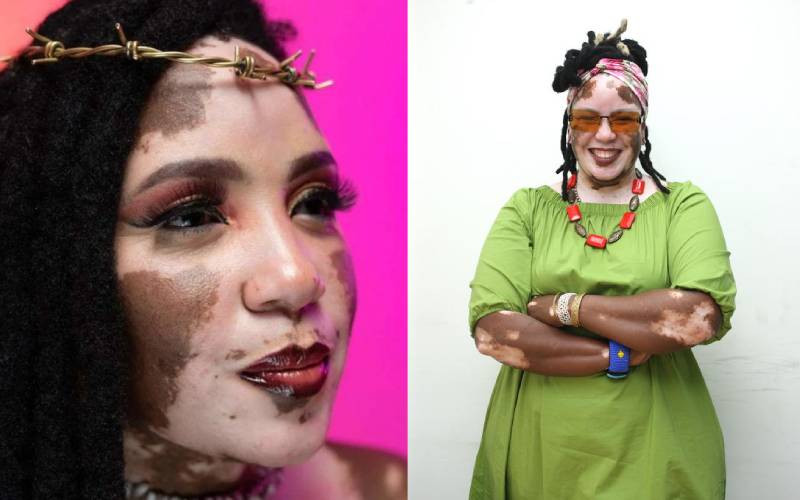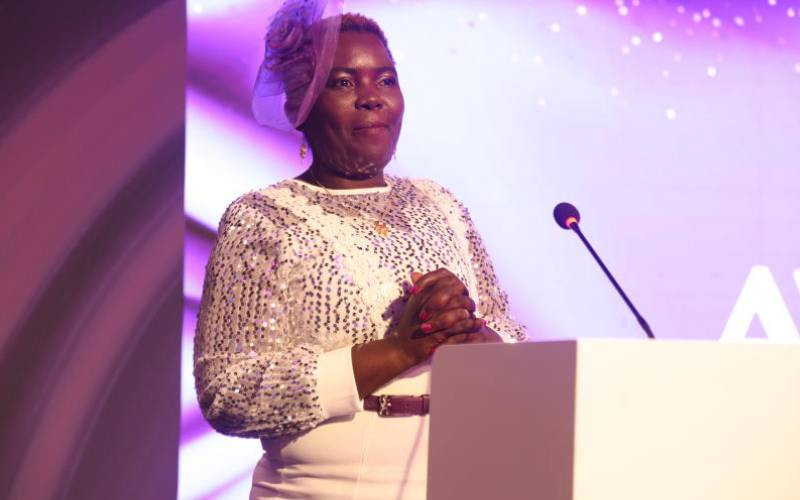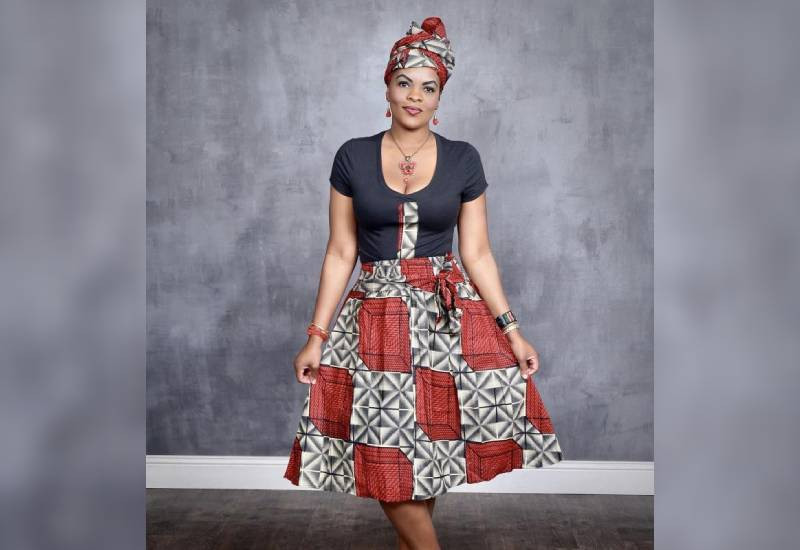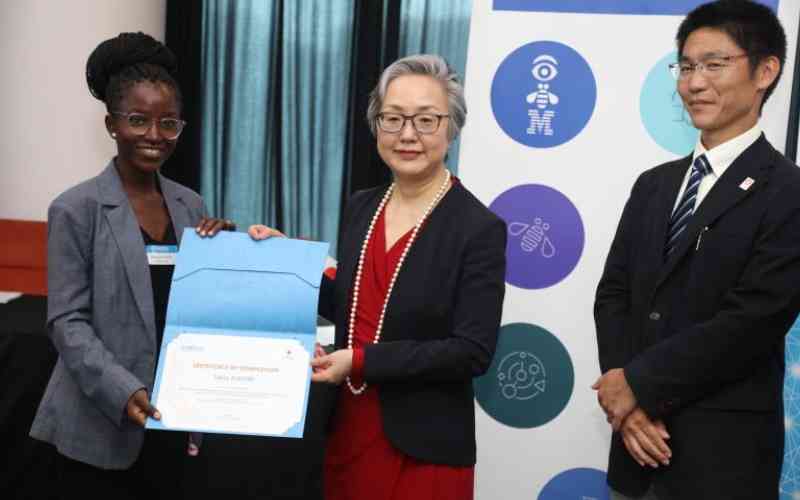
By the time a woman in Kenya is 50-years old, her children are almost already in high school, and settling into a middle-aged life
What comes to mind when you think – "empowered woman"? Your mental picture is probably of one who is educated, earning a cash income, and perhaps wealthy.
Lately, there's been talk especially among the NGO and development circles of the "feminisation of poverty" – that poverty is more often a lived experience for women, or that poverty disproportionately affects women.
But data from the latest Kenya Demographic and Health Survey (DHS) suggests that our popular understanding of "empowerment" is incomplete – there is some nuance that hardly makes it to the public conversation.
The data shows that contrary to expectation, the likelihood that a woman earns more than her husband decreases – rather than increases – with education and wealth.
In other words, the poorer a household, and the less educated the woman in that family is, the more likely she brings in more cash income than her husband.
It's a surprising twist suggesting that relative to the men in their lives, women on the lower end of the income scale are more empowered, in that sense, than those who are better educated and wealthier in absolute terms.
For women with no education, 14.5 per cent earn more cash income than their husbands; this decreases with every gain in education status such that by the time women are college or university educated, just 9.8 per cent earn more than their husbands.
If we flip it and now look at who's earning less, 56.1 per cent of women with no education earn less than their husbands. But more than three-quarters (75.6 per cent) of post-secondary educated women earn less than their husbands.
The same trend shows up if we divide all households according to five wealth percentiles, each representing a fifth (or 20 per cent) of the population. 63.2 per cent of women in the poorest wealth percentile earn less than their husbands, but among the richest, the proportion is up to 76.4 per centile.
Tough
And if we break it down by region, the results are even more surprising. The stereotypical "tough" or "modern" woman in Central or Nairobi is among the least likely to out-earn her husband – less than 10 per cent of respondents in this region said the wife's cash earnings were more than that of the husband. It is actually a woman in North Eastern who most likely to have the highest cash income relative to her husband, at 26.7 per cent.
What's going on here? Why would a lower income status confer more earning power for a woman and not a man – at least not in the same relative sense?
It seems the answer has to do with the nature of our informal economy, which is the dominant experience in the Kenyan workforce today. The way culture and informality intersect in Kenya favours women, in a way that it doesn't for men.
For structural reasons, the majority of jobs available in the Kenyan economy that have a low barrier to entry tend to be in small retail or the personal services.
These kinds of job opportunities, such as hawking vegetables, looking after the child of a friend, or working as a salon or as a househelp, are abundant, and are also more culturally acceptable for a woman to do –but not so much for a man.
For many men, jobs are not just about the money they bring in. They are also, in a way, a statement about a man's status, esteem or worthiness as a man. But the jobs that men would find worthy of their manliness are much less abundant in 21st century Africa.
The privatisation sell-off and retrenchments of the late 80s and 90s shrunk the formal sector considerably; a comfortable life-long job in a state corporation or nationalised factory became a thing of the past. And with the state disinvesting in agriculture, manufacturing, health and education, informality, or "hustling" became the way to make ends meet.
Diminishing
This kind of uncertainty (and diminishing of status) was unbearable to many men – even more than their children or families' very survival.
In Uganda, for example, Yoweri Museveni's government aggressively went on a privatisation and free market spree when it came to power in 1986.
State marketing boards (the equivalent of the Kenya's National Cereals and Produce Board, the Coffee Marketing Board and the like) were dismantled, as were state co-operative societies and parastatals. Suddenly, men who would ordinarily leave their women to do all the farm work and then go to the marketing board for the annual payout found that they had no role.
Women would continue to farm, but then the women would also take the produce to the market, sit there and sell it, and pocket the cash. Men now had "nothing to do"; stories are told of men who would abandon their families and set up abode with a local chang'aa-selling woman, bewildered and lost.
Even as our economic reality has changed considerably in the past three decades or so, our cultural and social norms have not caught up.
So it is not that there are no jobs – there will always be houses that need cleaning or vegetables that need selling. But many men would prioritise their reputation and social status over bringing actual money home to their families, and so shun the opportunities that are actually available. In this way, women end up earning more cash income in low-income households, even if it is from many "small" jobs.
Remittances could also be a factor – data from Financial Sector Deepening (FSD) shows that remittances from relatives and friends in towns are the leading source of cash income for 36 per cent of rural families in Kenya. This money may be more likely to be sent to mothers, aunts and grandmothers in the village, rather than fathers and uncles.
Still, with each increase in education and wealth status, more job opportunities open up for men in the formal sector, and so this gap steadily narrows.
It is also possible that more educated and wealthier women seek husbands who are even more educated and richer than they are—they "marry up". This is why women with a post-secondary education and in the richest wealth quintile are actually the least likely to out-earn their husbands.
Who decides
The data gets even more interesting when we look at who gets to decide how a woman's cash earnings are used, according to the relative magnitude of the wife's and husband's income.
The DHS data showed that women whose cash earnings are less than their husbands are more likely to decide for themselves how their money is going to be spent in the home.
More than half (53 per cent) of women who earn less than their husbands say that they decide for themselves how to use their own money.
By contrast, if a woman earns more, or the same as her husband, she is much more likely to report joint decision making on the use of the woman's earnings (65 per cent for those who earn more, and 47 per cent for those who earn the same).
This suggests an interesting power dynamic in Kenyan families today. If a woman is earning less than her man, then she is pretty much left to her own devices. That is "small money" that she can use on whatever she pleases.
But if she earns more, then her husband has an interest, and a say, on how it is used – arguably a kind of petty "power grab" at home. Because her out-earning her husband "diminishes" his status in a patriarchal society, she has to make him feel "included" by relinquishing some of her autonomy on how the money is used. That way, he can reassert himself as the head of the home.
- The writer is a writer, journalist and executive editor of Africa data visualiser and explainer site Africapedia.com. Twitter: @chris_mungai
 The Standard Group Plc is a multi-media organization with investments in media platforms spanning newspaper print
operations, television, radio broadcasting, digital and online services. The Standard Group is recognized as a
leading multi-media house in Kenya with a key influence in matters of national and international interest.
The Standard Group Plc is a multi-media organization with investments in media platforms spanning newspaper print
operations, television, radio broadcasting, digital and online services. The Standard Group is recognized as a
leading multi-media house in Kenya with a key influence in matters of national and international interest.

